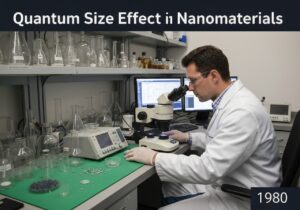A thermal lance achieves temperatures of 3,500 °C to 4,500 °C, far exceeding conventional torches. This intense heat does not just melt the target material. The jet of pure oxygen also causes rapid oxidation of the material itself, effectively making it part of the fuel source. This combined melting and burning action allows it to cut through thick steel, concrete, and rock.
High-Temperature Cutting Mechanism
The efficacy of the thermal lance stems from its ability to generate extreme temperatures locally. While an oxy-acetylene flame reaches about 3,500 °C, the burning of iron in pure oxygen within the lance can push the reaction temperature towards 4,500 °C. This is due to the highly exothermic nature of iron oxidation. When this superheated jet of molten iron, iron oxide, and unreacted oxygen strikes a target, multiple processes occur simultaneously. On a steel target, the lance provides the activation energy and an oxygen-rich environment to ignite the target steel itself, which then undergoes the same exothermic oxidation as the lance. This creates a self-propagating cut. When used on concrete, the mechanism is different. The intense heat melts the silica ([latex]SiO_2[/latex]) components of the aggregate and cement, which have melting points around 1,700 °C. The steel rebar within the concrete is oxidized and cut as described before. The high-pressure gas stream then expels the molten silicate slag and molten steel, clearing the kerf. The process is less of a ‘cut’ and more of a controlled, high-speed erosion via thermal and chemical attack. The addition of aluminum or magnesium wires to the lance’s core can further increase the reaction temperature, enhancing its effectiveness on materials with very high melting points or thermal conductivity.
النوع
الاضطراب
الاستخدام
السلائف
- understanding of thermodynamics and heat transfer
- development of refractories and materials capable of withstanding high temperatures
- knowledge of the chemical properties of iron and its oxides
- invention of pressure regulators for handling compressed gases
- basic principles of jet propulsion and fluid dynamics
التطبيقات
- breaching bank vaults and secure facilities
- cutting through reactor pressure vessels in nuclear decommissioning
- geological core sampling in hard rock
- demolition of bridges and other large infrastructure
- scrap processing of oversized metal objects
براءات الاختراع:
أفكار ابتكارات محتملة
!!مستويات !!! العضوية مطلوبة
يجب أن تكون عضوًا !!! مستويات!!! للوصول إلى هذا المحتوى.
متاح للتحديات الجديدة
مهندس ميكانيكي، مشروع، هندسة العمليات أو مدير البحث والتطوير
متاح لتحدي جديد في غضون مهلة قصيرة.
تواصل معي على LinkedIn
تكامل الإلكترونيات المعدنية والبلاستيكية، التصميم مقابل التكلفة، ممارسات التصنيع الجيدة (GMP)، بيئة العمل، الأجهزة والمواد الاستهلاكية متوسطة إلى عالية الحجم، التصنيع المرن، الصناعات الخاضعة للتنظيم، شهادات CE وFDA، التصميم بمساعدة الحاسوب (CAD)، Solidworks، الحزام الأسود من Lean Sigma، شهادة ISO 13485 الطبية
احصل على جميع المقالات الجديدة
مجاني، لا يوجد بريد عشوائي، ولا يتم توزيع البريد الإلكتروني ولا إعادة بيعه
أو يمكنك الحصول على عضويتك الكاملة -مجانًا- للوصول إلى جميع المحتويات المحظورة >هنا<
الاختراع والابتكار والمبادئ التقنية ذات الصلة










